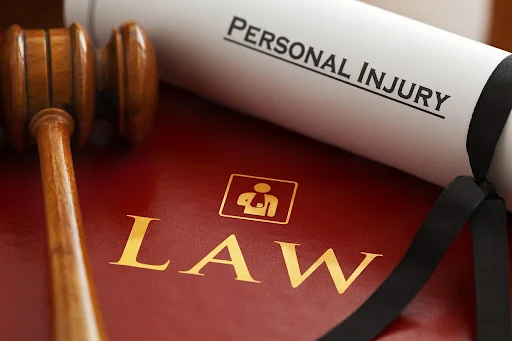Experiencing a personal injury is stressful enough without the added burden of navigating the legal process alone. The decisions made in the aftermath can have a lasting impact on both your physical recovery and financial well-being. Whether it’s a car crash, slip and fall, or another type of injury caused by someone else’s negligence, the process of filing and managing a claim can feel overwhelming. Understanding what to do—and just as importantly, what to avoid—can significantly affect the outcome of your case Personal Injury Claim.
This guide outlines key steps and common missteps, helping you handle your claim with greater clarity and confidence.
Hiring the Right Legal Help
One of the first things many injured individuals ask themselves is whether they need a lawyer. The answer often becomes clear once the paperwork, insurance adjusters, and legal jargon start to pile up. When navigating the complex process of filing a claim, working with a personal injury attorney can make a measurable difference in both compensation and stress reduction. Choosing someone experienced means gaining a reliable advocate who can deal with negotiations, gather necessary evidence, and represent you if the case heads to court.
Without proper legal guidance, it’s easy to overlook key deadlines, misinterpret insurance policies, or settle for far less than what your injury is actually worth. It’s not just about having someone in your corner—it’s about having the right person who knows what to expect and how to respond when challenges arise.
Do Get Medical Attention Immediately
Seeking medical help should be the top priority after any accident. Some injuries, especially internal ones, don’t show symptoms right away. Waiting to get evaluated can not only put your health at risk, but it can also weaken your claim. Insurance companies often look for delays in treatment as an excuse to downplay the seriousness of your injury.
Going to the hospital or visiting your doctor right away creates a clear record linking your injury to the incident. This documentation can serve as powerful evidence when negotiating with insurance companies or presenting your case in court. Even if you feel okay, a professional evaluation helps rule out issues that could worsen over time.
Don’t Talk to the Insurance Company Without Preparation
It might seem harmless to give a quick statement or answer a few questions when an insurance representative calls. But these conversations can have long-term consequences. Insurers may use your words against you, sometimes twisting statements to reduce or deny your claim.
Avoid giving recorded statements or accepting a settlement before knowing the full extent of your injuries and costs. If you’ve already hired a lawyer, direct the insurer to speak with them instead. These early calls are rarely casual—they’re designed to gather information that may limit how much you’re paid. Stay polite, but cautious. It’s better to wait and be fully informed than to make a rushed decision you later regret.
Do Document Everything
The more evidence you collect, the stronger your case will be. Photographs from the scene, copies of medical reports, eyewitness statements, police reports, and anything else related to the accident can prove invaluable. Even something as simple as a dated journal entry describing your symptoms each day can demonstrate the ongoing impact of your injury.
Keep receipts for medical expenses, travel costs for treatment, time missed from work, and anything else connected to your recovery. These records not only help build your claim but also make it easier for your attorney to calculate a fair settlement. Organizing your documents from the start can save you from unnecessary headaches later on.
Don’t Exaggerate or Lie About Your Injuries
It may seem tempting to embellish details in hopes of getting more money, but this approach almost always backfires. Insurance companies are highly skilled at spotting inconsistencies. If you’re caught being dishonest, your entire claim can be dismissed. Worse still, you could face legal consequences for fraud.
Be truthful about your symptoms, your level of pain, and how the injury affects your daily life. If your situation changes—if your pain worsens or improves—update your records and your attorney accordingly. Honesty builds credibility, and credibility is key to winning support for your claim. You don’t need to exaggerate something that already has a real and measurable impact.
Do Stay Off Social Media
After an accident, it can be tempting to share updates online. You might want to reassure friends that you’re okay or vent about what happened. But anything you post—photos, check-ins, comments—can be found and used by insurance adjusters or defense attorneys to challenge your claim.
For instance, a picture of you smiling at a family gathering could be taken out of context to suggest your injuries aren’t serious. Even private accounts aren’t truly private when legal proceedings are involved. It’s safer to avoid posting about the incident or your recovery altogether until your case is resolved. If you must be online, think twice before sharing anything that could be misinterpreted.
Dealing with a personal injury claim involves a series of decisions that can either protect or jeopardize your case. Knowing when to act, what to say, and who to trust plays a major role in the outcome. By focusing on the facts, gathering strong evidence, and maintaining clear communication, you can move through the claims process with greater control and a stronger chance of securing fair compensation.







